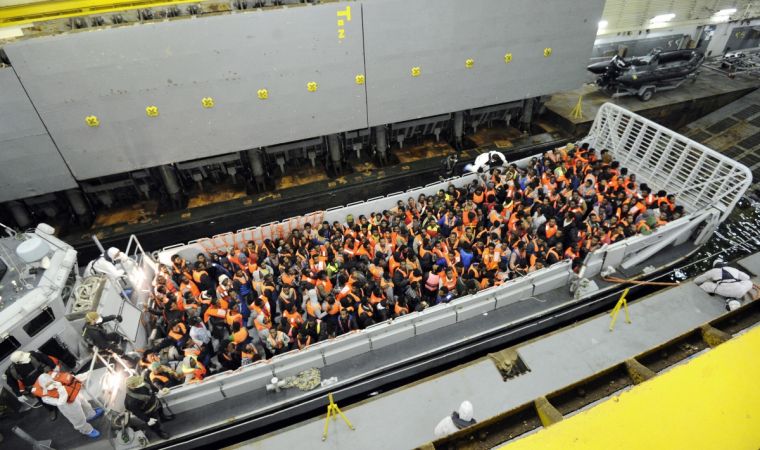Italy: Evangelicals and Catholics create 'humanitarian corridor' for refugees – 'If Christians don't do this, who will?'

Evangelicals and Catholics in Italy are joining together to create a "humanitarian corridor" for refugees, according to the Crux news service.
The corridor is a joint project of the Federation of Evangelical Churches from Italy, the Tavola Valdese, a reformed Christian Church, and the Italian Catholic lay movement Sant'Egidio.
During the next six months the organisations will be working in Morocco and Ethiopia to relocate refugees to Italy with the support of Italy's foreign ministry.
Sant'Egidio president Marco Impagliazzo said: "This is an experimental project that will try to prevent death at sea and trafficking and to help those who are in a situation of extreme vulnerability."
So far in 2015, 3,619 people have died on the routes across the Mediterranean from Africa into Europe. Many refugees are in desperate need and have faced severe hardships on their way to their port of departure.
The programme has offices set up in Morocco and Lebanon, with one to open within six months in Ethiopia. Candidates will be screened by local authorities and successful applicants will receive visas for Italy. The Christian organisations will provide transportation, lodging, food, health care, Italian lessons and help to find a job to become integrated into their new communities.
"This way, those who have the right to do so will finally be able to enter our country avoiding the journeys of death," Impagliazzo said.
Tavola Valdese spokesman Eugenio Bernardini said his church is committed to spending more than one million euros on the project, and will spend more if needed.
"If Christians don't do this, who will?" he said. "We're trying to be at the service of the last, of those most in need, those who need refuge."
He said he would want to see other Christian churches in Europe "being courageous and having faith" by taking similar initiatives.
"So much is said regarding Christian unity," Impagliazzo said. "This project proves that we Christians are already united in the protection of those most at risk."











